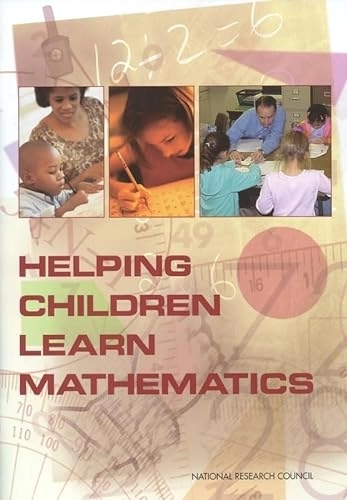Results from national and international assessments indicate that school children in the United States are not learning mathematics well enough. Many students cannot correctly apply computational algorithms to solve problems. Their understanding and use of decimals and fractions are especially weak. Indeed, helping all children succeed in mathematics is an imperative national goal. However, for our youth to succeed, we need to change how we're teaching this discipline. Helping Children Learn Mathematics provides comprehensive and reliable information that will guide efforts to improve school mathematics from pre-kindergarten through eighth grade. The authors explain the five strands of mathematical proficiency and discuss the major changes that need to be made in mathematics instruction, instructional materials, assessments, teacher education, and the broader educational system and answers some of the frequently asked questions when it comes to mathematics instruction. The book concludes by providing recommended actions for parents and caregivers, teachers, administrators, and policy makers, stressing the importance that everyone work together to ensure a mathematically literate society. Table of Contents Front Matter Overview Introduction What Does It Mean to Be Successful in Mathematics? How Does School Mathematics Need to Change for All Students to Become Mathematically Proficient? What Can Parents and Caregivers Do? What Can Teachers Do? What Can Administrators Do? What Can Policy Makers Do? Notes and Credits
Åtkomstkoder och digitalt tilläggsmaterial garanteras inte med begagnade böcker





















